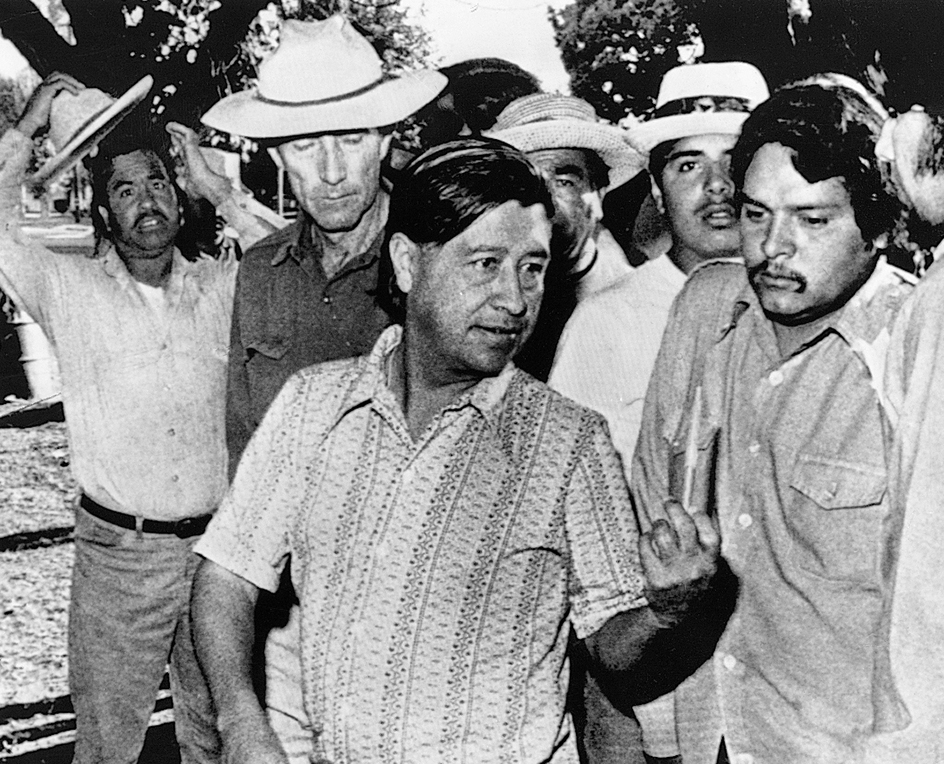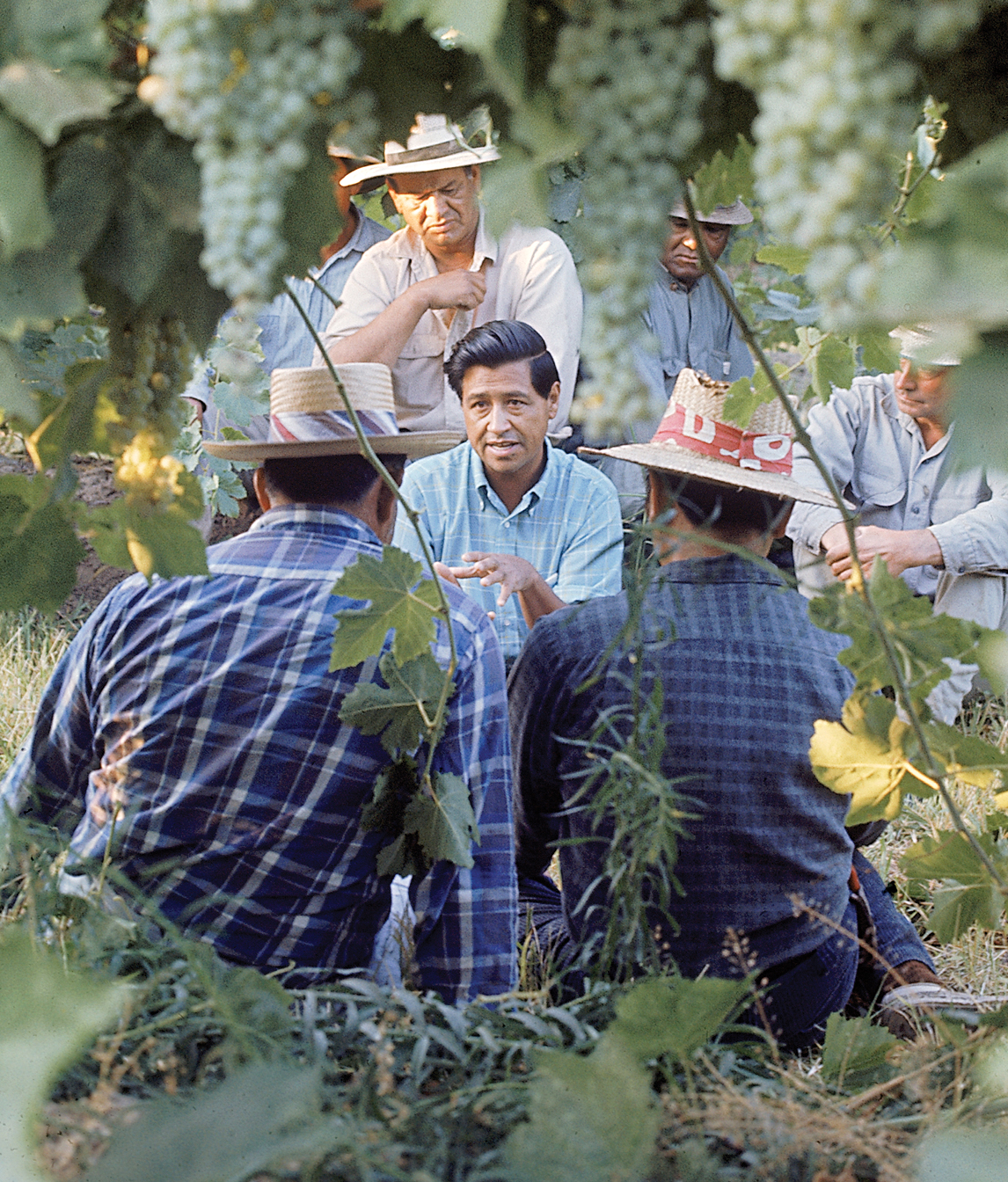Chavez, << SHAH vehz >> Cesar Estrada (1927-1993), was a labor union organizer, civil rights leader, and spokesman for the poor—especially his fellow Mexican American farmworkers. He supported nonviolent action to achieve his aims.

Chavez was born on March 31, 1927, on a farm near Yuma, Arizona. When he was 10 years old, his parents lost their farm, and the family became migrant workers in California. Like many children of farmworkers, Chavez worked in the fields alongside his family.

Chavez began to organize farmworkers in California in 1962, when he established the National Farm Workers Association (NFWA) with activist Dolores Huerta. Many farmworkers wanted a union because they worked for sub-poverty-level wages, often for 12 hours a day in hot and dangerous working conditions. In 1965, the members of the NFWA went on strike against grape growers in Delano, California, alongside another farmworker group that was made up mostly of Filipinos. From the beginning of the strike, Chavez emphasized the need for a nonviolent and peaceful approach. He led a march of workers across California to the state capital, Sacramento, in order to draw attention to La causa (The Cause). In 1966, the two striking groups merged into the United Farm Workers Organizing Committee (UFWOC).
After the strike, march, and merger, California’s wine grape growers agreed to accept the UFWOC as the collective bargaining agent for the grape pickers. But the table grape growers refused to do so. Chavez then organized a national boycott of California table grapes. When tensions escalated on the picket lines, Chavez fasted in order to inspire members to recommit to nonviolence. Chavez later undertook several other fasts during his life.
In 1970, most table grape growers agreed to accept the union. More than 70,000 farmworkers gained the right to fair wages and safe working conditions. Later that year, Chavez called for a boycott of lettuce produced by growers without union contracts. In 1972, the union changed its name to the United Farm Workers of America (UFW). Many grape growers failed to renew their contracts in 1973, and Chavez led a new grape boycott. The UFW ended the boycotts in 1978. In 1984, Chavez led the UFW in a boycott and campaign to protest pesticide use that was harmful to workers.
Chavez inspired not only farmworkers, but also Mexican Americans in their struggle for civil rights, justice, and full inclusion in American society. He declared that the “truest act of courage … is to sacrifice ourselves for others in a totally nonviolent struggle for justice.” He died on April 23, 1993.
See also Huerta, Dolores Fernandez ; Rodriguez, Arturo Salvador ; United Farm Workers of America.
